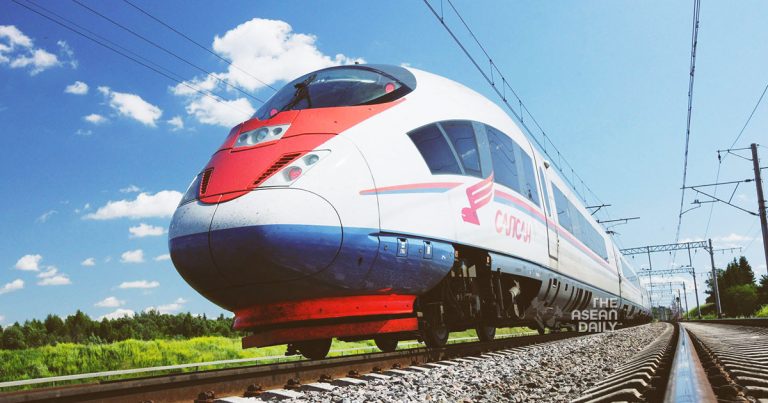8-6-2024 (KUALA LUMPUR) In Malaysia’s ambitious plans to overhaul its infrastructure, the proposed high-speed rail (HSR) connection between Kuala Lumpur and Singapore remains a pivotal piece of the puzzle. However, as Transport Minister Anthony Loke emphatically stated during his recent visit to Hong Kong, the multibillion-dollar project will only proceed if it can secure private funding, a condition aimed at safeguarding the nation from accruing further debt.
Loke’s stance on the HSR project, which has been shelved and resurrected over the years, underscores Malaysia’s commitment to fiscal prudence and its reluctance to shoulder the financial burden alone. “Over the years, one of the problems that we face for the Malaysian government is a high debt ratio…we intend to reduce this debt,” he told This Week in Asia during a sit-down interview.

Acknowledging the colossal costs associated with such a mega-infrastructure endeavor, with some projections estimating it could reach a staggering 100 billion ringgit (US$21.3 billion), Loke reiterated the government’s unwavering position: “As of now, our principle still stands. That is, we want the private sector to take the lead for this project.”
The proposed HSR link, initially slated for a 2026 launch, promises to revolutionize travel between the two nations, slashing the journey time from Kuala Lumpur to Singapore from around four hours by road to a mere 90 minutes by rail. However, its substantial price tag and the attendant financial risks prompted Malaysia to cancel the project in January 2021, only for it to be revived later that year by the nation’s newly inaugurated king, who declared it a priority for his five-year term.
Malaysia’s renewed pursuit of the HSR project is emblematic of its broader ambitions to modernize its transport network and keep pace with regional peers like Indonesia and Thailand in terms of rail connectivity. Yet, the path forward remains fraught with challenges, as evidenced by reports that several Japanese firms, including the East Japan Railway Company, have shied away from heavy investment due to concerns over the lack of government funding.
Loke, however, dismissed these reports as “inaccurate,” clarifying that Malaysia had not yet initiated a formal tender process. “Some companies might have exited during the request for information process which was launched last July, because they felt they were ‘not in the position to provide a proposal’,” he explained, adding that there remains ample interest from local and international consortiums.
According to reports, three consortiums have been shortlisted for the HSR project, including two local joint ventures and one Chinese consortium purportedly led by the state-owned China Railway Construction Corporation. While Loke refrained from confirming the identities of the shortlisted entities, he assured that the government was evaluating a number of robust proposals.
Once the evaluation process is complete, Malaysia will initiate formal discussions with Singapore, affording the city-state the opportunity to decide whether it wishes to participate in the project. In August 2022, Singapore signaled its openness to discuss new proposals from its northern neighbor, promising to approach the project with a “clean slate” – a marked departure from 2021 when Malaysia’s cancellation prompted the island nation to collect a compensation fee exceeding S$100 million (US$74 million).
“We need to have further discussions at the government level…before we come to a conclusion on how we bring a proposal forward,” Loke stated. “Once that is done, we need to start talking to the Singapore side, because this project involves two countries.”




